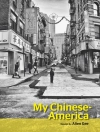Anne Spencer’s identity as an artist grew from her relationship to the natural world. During the New Negro Renaissance with which she is primarily associated, critics dismissed her writings on nature as apolitical and deracinated. Do Not Separate Her from Her Garden corrects that misconception, showing how Spencer used the natural world in innovative ways to express her Black womanhood, feminist politics, spirituality, and singular worldview. Employing ecopoetics as an analytical frame, Carlyn Ferrari recenters Spencer’s archive of ephemeral writings to cut to the core of her artistic ethos. Drawing primarily on unpublished, undated poetry and prose, this book represents a long overdue reassessment of an underappreciated literary figure. Not only does it resituate Spencer in the pantheon of American women of letters, but it uses her environmental credo to analyze works by Alice Walker, Zora Neale Hurston, and Dionne Brand, positioning ecocritical readings as a new site of analysis of Black women’s writings.
Table of Content
Acknowledgements
Preface
Introduction: Anne Spencer’s (Re)vision of Nature
1. Leventy-leven Bits of Paper Stuck in so Many Different Places: Anne Spencer’s Audacious Eccentricity
2. This Small Garden Is Half My World: Anne Spencer’s Ecopoetics
3. God Never Planted a Garden: Anne Spencer’s Ecotheology
4. Anne Spencer’s ‘Natural’ Means of Expression
5. Do Not Separate Them from Their Gardens: Black Women’s Writings and Ecopoetics
Coda: If People Were Like Flowers
Afterword: Lessons from Anne Spencer
Bibliography
About the author
Carlyn Ena Ferrari is Assistant Professor of English at Seattle University.












